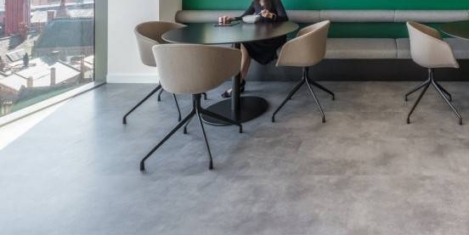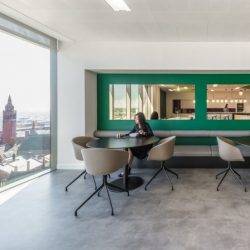November 25, 2018
Mental health problems are rife across Europe
 Greater efforts to promote mental health and improve early diagnosis and treatment of those with mental illness would improve the lives of millions of Europeans and contribute to stronger economic and employment conditions, according to a new joint OECD/European Commission report. Health at a Glance: Europe 2018 says that mental health problems, such as depression, anxiety disorders and alcohol and drug use disorders, affect more than one in six people across the European Union in any given year. Besides the impact on people’s well-being, the report estimates the total costs of mental ill-health at over EUR 600 billion – or more than 4 percent of GDP – across the 28 EU countries.
Greater efforts to promote mental health and improve early diagnosis and treatment of those with mental illness would improve the lives of millions of Europeans and contribute to stronger economic and employment conditions, according to a new joint OECD/European Commission report. Health at a Glance: Europe 2018 says that mental health problems, such as depression, anxiety disorders and alcohol and drug use disorders, affect more than one in six people across the European Union in any given year. Besides the impact on people’s well-being, the report estimates the total costs of mental ill-health at over EUR 600 billion – or more than 4 percent of GDP – across the 28 EU countries.









 Small and mid-sized businesses have hired three times more people than larger businesses over the past five years and could overtake large companies by 2030, according to new analysis of the latest ONS data commissioned by Santander Business Banking. However, separate research commissioned by the bank has found that significant numbers of young people are failing to recognise the significant job opportunities that SMEs offer. Just a third (35 percent) of Generation Z and Millennials leaving full time education say they wish to work for an SME, while an even smaller proportion, just one in six (18 percent), want to work for a start-up or micro business.
Small and mid-sized businesses have hired three times more people than larger businesses over the past five years and could overtake large companies by 2030, according to new analysis of the latest ONS data commissioned by Santander Business Banking. However, separate research commissioned by the bank has found that significant numbers of young people are failing to recognise the significant job opportunities that SMEs offer. Just a third (35 percent) of Generation Z and Millennials leaving full time education say they wish to work for an SME, while an even smaller proportion, just one in six (18 percent), want to work for a start-up or micro business. 


























November 13, 2018
Fostering creativity within organisations through space and culture
by Serena Borghero • Comment, Workplace design
(more…)